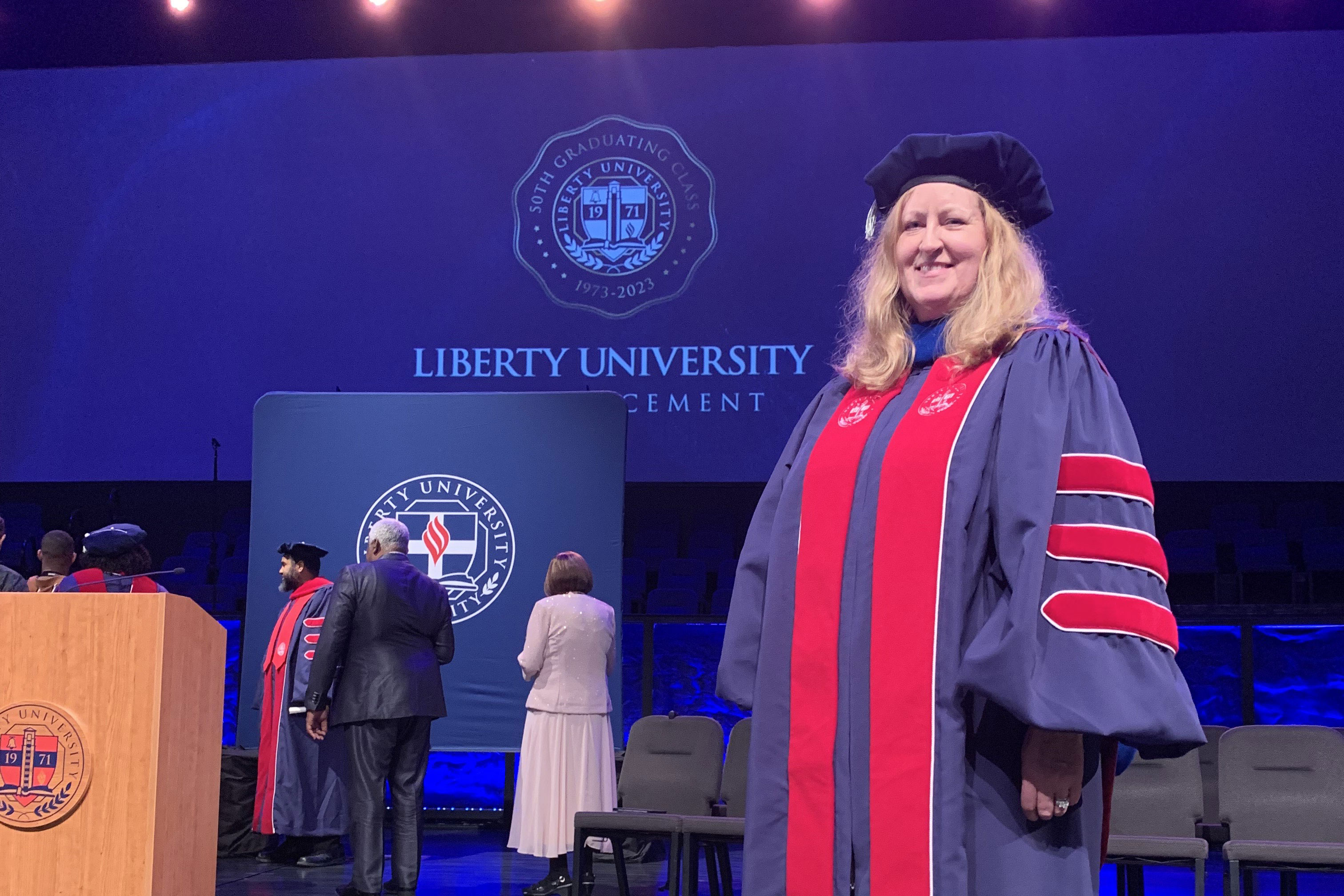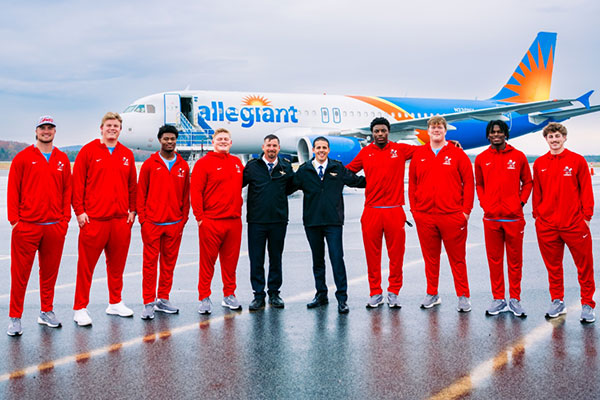Liberty School of Aeronautics graduate selected as alternate for NASA’s yearlong simulated Mars mission
October 14, 2025 : By Ted Allen - Office of Communications & Public Engagement
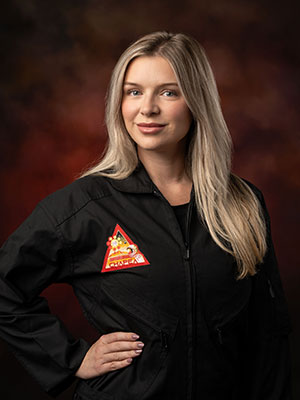
Since graduating with an M.S. in Aeronautics through Liberty University Online Programs in 2023 and launching her career as a pilot with PSA Airlines, Inc., flying out of Washington, D.C., and Baltimore, Laura Marie has also set her sights on planetary exploration and habitation.
Marie, who was born in the United Kingdom and is now an American citizen, was selected as an alternate for NASA’s yearlong simulation of a Mars mission inside the 1,700-square-foot 3D-printed Mars Dune Alpha habitat at Johnson Space Center in Houston. The four-member crew enters the habitat on Sunday and will remain there until Nov. 1, 2026. Marie and one other alternate will wait in the wings to fill in for any of the four as needed.
“I am very excited for Mission 2,” Marie said. “Being an alternate means I have to be fully trained for any role and prepared to jump in at any time.”
The six positions were filled from a pool of about 8,000 applicants. Marie said her education and experience in aviation as well as her role of cadet pilot mentor for PSA Airlines helped distinguish her from the rest of the field.
“One key characteristic that helps candidates stand out in these kinds of selection programs is adaptability,” she said. “My day-to-day job as an airline pilot has probably helped me prepare most for Mars Dune Alpha by expecting the unexpected. Mars is going to call for a pretty autonomous crew that can problem solve and troubleshoot while quickly referencing all available materials, which isn’t too different from any given flight deck on a day-to-day basis.”
PSA Airlines, a regional airline that services cities across the United States, hired Marie as a pilot specializing in commercial flights, navigation, aviation, and flight safety. She has logged close to 3,000 flight hours.
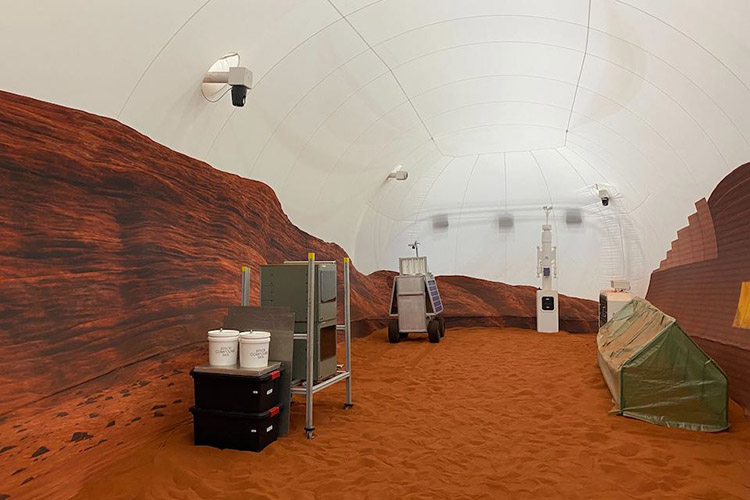
In addition to her Airline Transport Pilot License, she also holds Flight Instructor and Advanced Ground Instructor licenses. Outside the flight deck, Marie dedicates her time to mentoring and supporting aspiring pilots as they navigate their careers.
Marie graduated with an M.S. in Aeronautics through Liberty University Online Programs in 2023.Liberty School of Aeronautics Associate Dean Dr. Julie Speakes, who monitored Marie’s progress through the school’s online master’s degree program, said Marie exemplifies the university’s mission to prepare students for leadership and excellence in high-impact fields.
“Her role as an alternate crew member for the simulated Mars habitat mission at Johnson Space Center highlights the growing influence of Liberty-trained professionals in cutting-edge aerospace initiatives,” Speakes said. “Marie’s background as a regional airline pilot combined with her academic foundation and international perspective uniquely positions her for the demands of space exploration. This achievement underscores Liberty’s commitment to equipping students with the adaptability, problem-solving skills, and resilience needed for the future of human spaceflight.”
As NASA gears up for crewed Artemis missions to the moon in the near future, this next Mars surface simulation mission (the second out of three scheduled missions conducted through CHAPEA, Crew Health and Performance Exploration Analog) will provide NASA with foundational data essential for human habitation on the moon, Mars, and beyond by evaluating specific human health and performance factors.
The simulation will be facilitated by NASA’s Human Research Program that develops countermeasures for five hazards of human spaceflight: radiation, isolation and confinement, distance from Earth, microgravity, and hostile or closed environments. It will also simulate high-tempo extravehicular activities to enable and support safe, productive human space travel and investigate the effects spaceflight has on human bodies and behaviors in order to keep astronauts healthy and mission-ready.
On the first 378-day mission, which concluded on July 6, 2024, a different four-member crew performed operations such as “Mars walks,” growing and harvesting vegetables to supplement shelf-stable food, maintaining their equipment and habitat, and functioning under additional stressors a potential Mars crew would experience, including communication delays with Earth, resource limitations, and isolation.
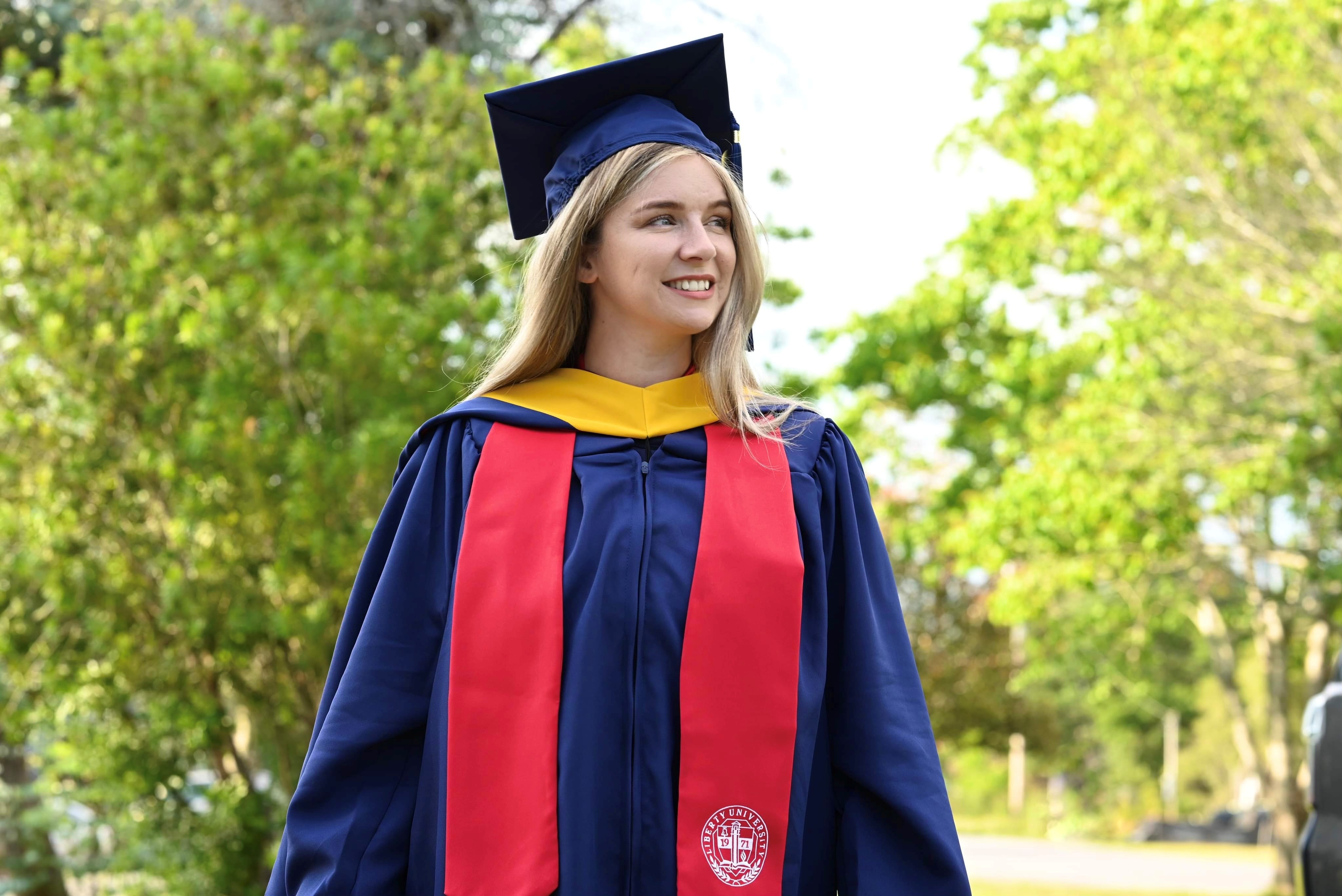
Marie said she has a solid support system in her family, friends, and her faith, and she is optimistic about the future of space exploration. She hopes to stay involved in NASA programs, potentially as an astronaut on even longer-term missions.
“I expect our Mars focus missions to not only continue but also to expand,” Marie said. “Hopefully we will see humans on Mars in the next 10-15 years, but regardless of that goal, I think the next decade is going to be an extremely exciting time for space travel.”
NASA is developing technologies to allow for crewed missions to Mars as soon as the 2030s.
“One hundred percent I would take that seat on that ride if it were ever offered to me,” Marie told The Guardian. “I think the whole multi-planetary species, it’s where we’re heading. And anything I can do to be a part of it — if it’s this (CHAPEA program), if it’s something else — I’m just happy to be involved.”
